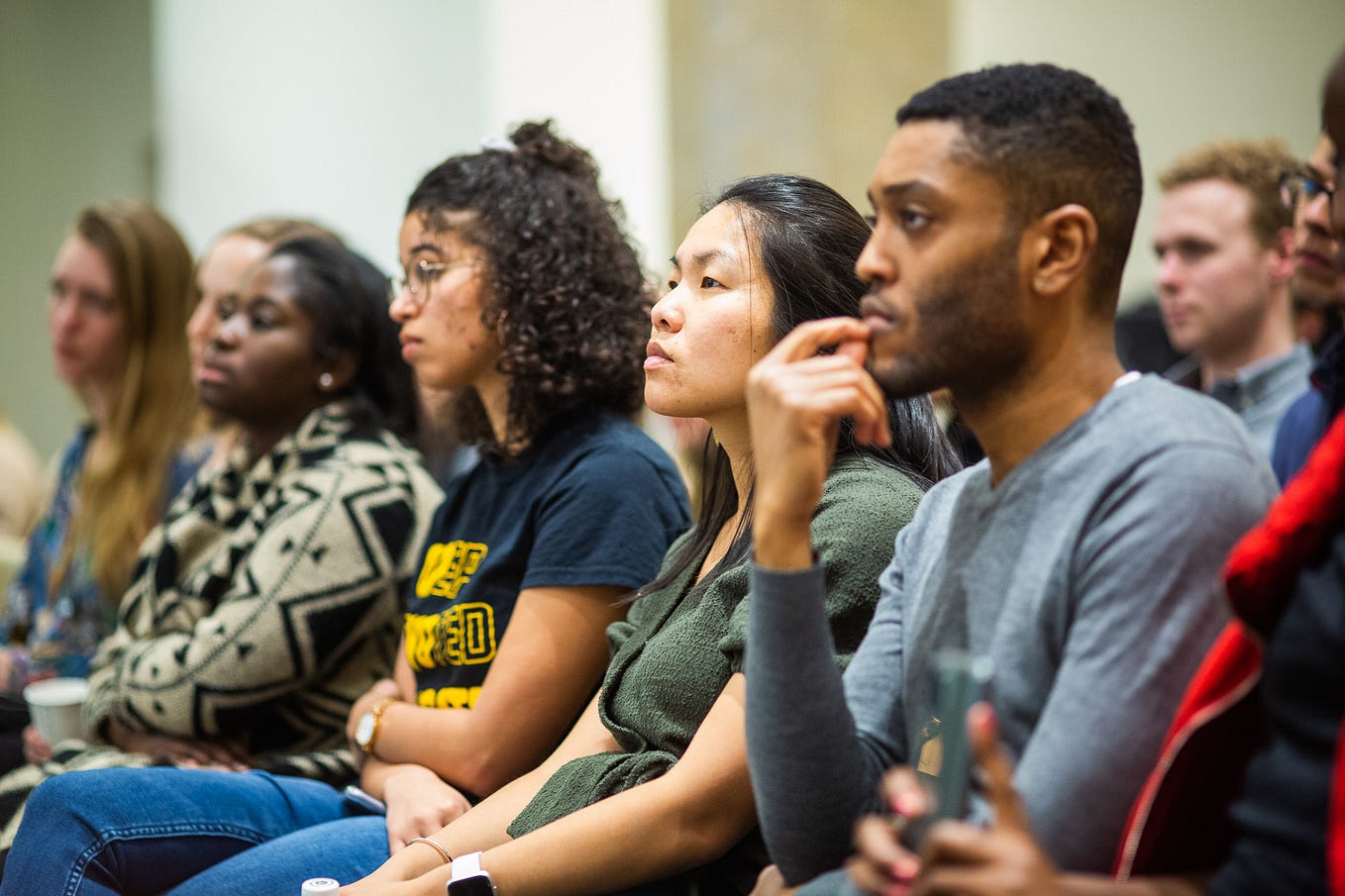Conformity in College

Image from Creative Commons
College is a period of self-discovery – the idea of “finding yourself” in college implies that in the 18 years prior, you were lost. However, the transition to college life challenges us to confront our identities with newfound autonomy and responsibilities that come with young-adulthood.
The change in environment coupled with newfound freedom makes us more open-minded. Whether it’s listening to music you never imagined on your playlist, staying out late or following superstitions you never bought into — like don’t split the pole — your behaviors slowly mirror your closest friends.
In human behavior, conformity is an indicator of how our actions show what’s influencing decisions both large and small. But why do we conform? Are college students and adolescents more susceptible to conformity?
According to The Social Brain: Neural Basis of Social Knowledge, conformity involves the alternation of personal values, beliefs or behaviors to mirror those of others, whether real or imagined. This interplay between social media and conformity consists of informational and normative social influence.
Professor Adam Meade in the Department of Psychology at North Carolina State University said “For many decades college campuses have been the location for things such as political protest and activism in part because the norms present on a campus are more conducive to such behaviors and elsewhere.”
The flip side of conformity reveals its darker truths. The desire for social approval compels people to conform outwardly while harboring internal dissent.
In Asch’s Line Judgment Studies, participants often looked towards majority- group judgments to avoid standing out or facing ridicule.
Whether driven by a primal need for belonging, looking for certainty amidst ambiguity, or social approval: conformity influences our lives.
Social media platforms like Facebook, Instagram, Twitter and Tiktok create a web of social influence. From Tiktok trends, dances, fashion influencers and now the Tiktok shop, you can see conformity seeping into college culture. Social Media creates an instant connection between strangers who might not even share similar interests, but view the same 60-second videos.
Informational social influence, similar to a beacon guiding ships through the fog of uncertainty, compels people to seek cues from others as a source of behavioral guidance. In the realm of social media, this manifests in scenarios where users look to their online cohorts for direction, whether in choosing which restaurant to visit or deciphering the latest fashion trends, regardless of their initial opinions.
As emphasized by Craig Hill (1987), the desire for affiliation exhibits our relentless quest for belonging facilitated by the virtual communities fostered by social media platforms.
The first weeks of college are crucial in finding your crowd and where you belong. Wallflowers and homebodies attend parties and chaos leads to friendships. Herds of freshmen wander around campus and it begs the question why are we so afraid to march to the beat of our own drum amongst strangers who have no perception of us. Is it a fear of first impressions, or what the unknown could symbolize in the grand scheme of things?
Standing out feels effortless until you find yourself among a crowd of outstanding individuals. As you connect over shared values, trust and respect gradually develop, surrounding you with like-minded peers day in and day out. This positive feedback loop, like a computer algorithm, can create the illusion that your views are widely shared, simply because your close circle reflects them.
Conformity feels claustrophobic when you don’t feel comfortable disagreeing with friends. There should never be a space where you can’t express your authentic feelings, especially not due to fear of being chastised or removed from a social circle.
Whether it happens consciously or subconsciously it isn’t inherently a negative thing. We learn how to behave through watching others and doing as they do. Similar to how younger siblings define their likes and dislikes through the preferences of their older siblings.
Conformity only becomes dangerous in one of 2 circumstances. 1) When you don’t agree but choose to comply out of fear and 2) When you no longer recognize yourself amidst the influence of others’ behaviors and beliefs.
Cultural norms further accentuate the connection between social media and conformity, making collectivist cultures exhibited a heightened susceptibility to group norms. Wang and Chang (2013) highlight how online platforms perpetuate conformity dynamics within virtual communities through user-generated content.
Social media acts as a powerful force shaping our choices, preferences and perceptions of reality, nudging us toward conformity through the allure of social connection. Yet, being mindful of our own beliefs and values is a defense against blindly following the crowd.
A study by HP Computing revealed how the number of likes on a post could sway individual preferences, underscoring the pervasive influence of normative social influence. Reactance theory shows how individuals react when their freedom of choice is threatened, which often yields to group consensus for self-preservation.
College offers a dichotomy between providing ample opportunities to stand out yet simultaneously placing you amidst peers where blending in seems effortless. Don’t allow yourself to become one of many because you were meant to be set apart.
- Categories: